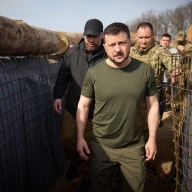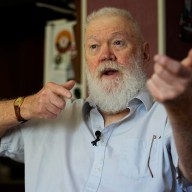VANCOUVER, B.C. – Government and police officials in charge of responding to a disaster at the Vancouver 2010 Olympics say that after three exercises involving dozens of agencies and hundreds of people, they’re ready for whatever may come.
The federal Public Safety Department oversaw three security and safety exercises – named bronze, silver and gold – beginning in November 2008 and wrapping up earlier this month.
The events were designed to bring together every organization that would be involved in responding to potential emergencies during the Olympics, from heart attacks and rock slides to hostage takings and nuclear attacks.
The third – exercise gold – included more than 1,000 people and has been described as the largest such exercise in Canadian history.
Representatives from the B.C. government, Ottawa and the RCMP-led Integrated Security Unit told an emergency preparedness conference in Vancouver on Wednesday that they’ve been able to work out many of the issues they faced and are now ready for the Games.
The conference heard that emergency officials have made sure their communications systems are compatible, that everyone understands everyone else’s jargon, and that every organization knows how they fit into the larger picture.
“It’s always ensuring that we have the right plans, the personnel, the right equipment and the right procedures to meet those always-changing challenges,” Dale Bendfeld of the Integrated Security Unit told reporters after the presentation.
“We plan to make sure we have the right things in place so we can confirm them.”
The gold exercise included two live-action events – a simulated chemical attack and a simulated radiological event, both involving actors and even a mock news crew.
The third and largest exercise had to be scaled back because budget constraints prevented it from running for 24 hours a day, and an ambulance strike meant paramedics weren’t included.
Heather Lyle of British Columbia’s Public Safety Ministry said municipalities were forced to scale back their involvement, meaning the exercise only ran for 12 hours instead of around the clock.
“We had to downscale that simply because local authorities did not have necessarily the budgets to pay for overtime staff to be able to work the 24/7,” said Lyle.
“I think we learned what we could in the 12-hour shift that we would have learned in the 24. We still practised doing the shift changes, which is what we were trying to achieve.”
As for the paramedics, Lyle said B.C. Ambulance officials were still involved in the planning stages, and she insisted they, too, will be ready.
“We have to respect they have a labour dispute, it’s a huge issue that they’re trying to deal with,” she said. “Clearly, it would have been an advantage to have them . . . but we had to work around that.”
The planning isn’t over.
The governments are still reviewing the lessons they learned from the exercises, while the security unit has 19 more exercises planned between now and the Games.
















